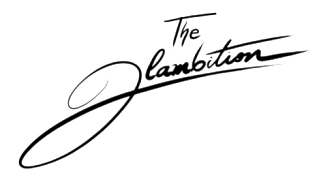Se acerca el 31 de octubre y por ello la pregunta que le ronda a muchos por la cabeza es "¿De qué me voy a disfrazar este año?". Les confieso que yo no me disfrazo desde que tenía 11 años (no hace tanto ;P ) pues por lo general los adultos lo hacen en medio de fiestas y yo soy bastante ñoña en ese sentido. Sin embargo, sé que muchos de ustedes si le invierten tiempo y sobre todo dinero a elaborar o adquirir un buen disfraz y descrestar en la celebración del Halloween.
Pero después de todo, ¿Por qué la costumbre de disfrazarse? La historia es bien larga.
El origen de esta fiesta anglosajona es milenario. Los pueblos celtas celebraban la festividad llamada Samhain que ocurría entre finales de octubre y principios de noviembre. Se creía que en la noche del 31 de octubre, las brujas gozaban de mayor vitalidad y por eso en esa noche se preparaban enormes fogatas y se dejaba dulces o comida en la puerta de las casas intentando ahuyentar a los malos espíritus. Cuando el Cristianismo llega a los pueblos célticos, la tradición del Samhain no desaparece pero si se transforma.
En el calendario gregoriano, el 1 de noviembre pasó a ser el día de Todos los Santos; el Samhain, la víspera de Todos los Santos, pasó a denominarse All-hallows Eve y por contracción de la expresión, Halloween; y por su parte, el Día de los Todos los Difuntos o Día de Todas las Almas pasó a ser el 2 de noviembre.
A mediados del siglo XVIII, los emigrantes irlandeses empiezan a llegar a América. Al principio Halloween sufre una fuerte represión debido a la arraigada tradición luterana en Nueva Inglaterra (EEUU); sin embargo a finales del siglo XIX, los Estados Unidos recibe una oleada de inmigrantes de origen céltico. Entonces el Halloween celta se fusiona con otras creencias de los pueblos aborígenes de Norteamérica y se incluye entre sus tradiciones el contar historias de fantasmas, la realización de bromas y la costumbre de disfrazarse.
Is coming October 31 and therefore the question that haunts many through your head is " What are you going to dress up this year? " . I confess that I don't dress up since I was 11 years old ( not so long ago :P ) because adults usually do in the midst of parties and I 'm pretty sappy. However, I know that many of you if you invest time and especially money to develop or acquire a good disguise and show off in Halloween.
But after all , why the custom of dressing up? The story is rather long .
The origin of this festival is ancient Anglo-Saxon. The Celts celebrated the festival called Samhain which occurred between late October and early November. It was believed that on the night of October 31 , the witches had greater vitality and so on that night huge bonfires and prepared sweets or food was left on the door of the house trying to scare away evil spirits . When Christianity reached Celtic peoples, the tradition of Samhain doesn't disappear but is transformed.
In the Gregorian calendar , November 1 became the feast of All Saints , The Samhain , the eve of All Saints , was renamed All- hallows Eve and contraction of the phrase , Halloween , and in turn, All Day of the Dead or All Souls Day became the November 2 .
A mid-eighteenth century , Irish immigrants start coming to America. At first Halloween suffers severe repression because Lutheran tradition rooted in New England (USA) , but in the late nineteenth century, United States receives a wave of Celtic immigrants. Then the Celtic Halloween merges with other beliefs of Aboriginal people in North America and adds to the storytelling traditions of ghosts , performing jokes and the custom of dressing up.
 |
En un futuro hipotético si llego a disfrazarme, estas serían muy buenas opciones para mí / In a hypothetical future if I get to disguise myself, these would be very good choices for me
|









